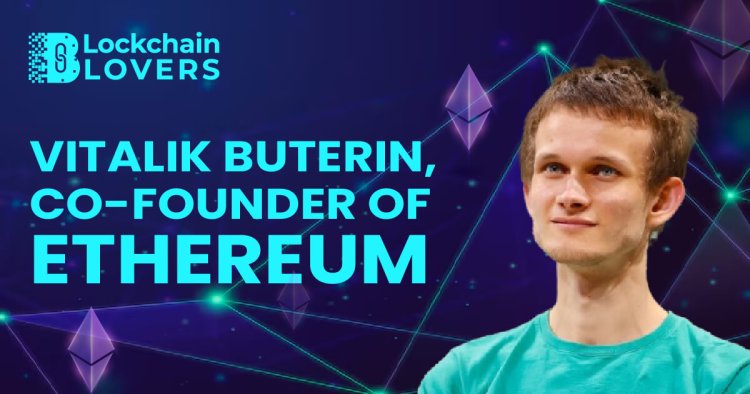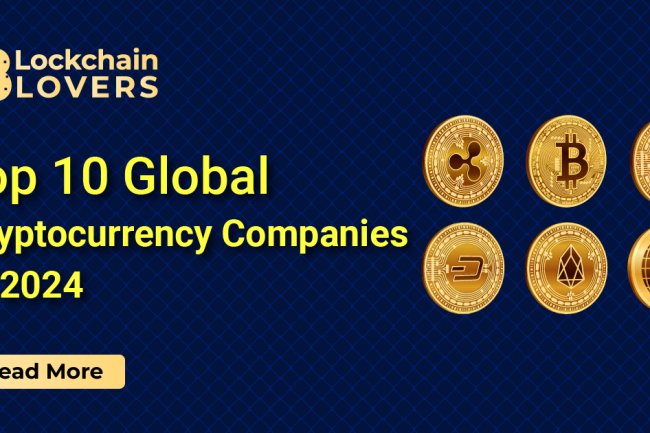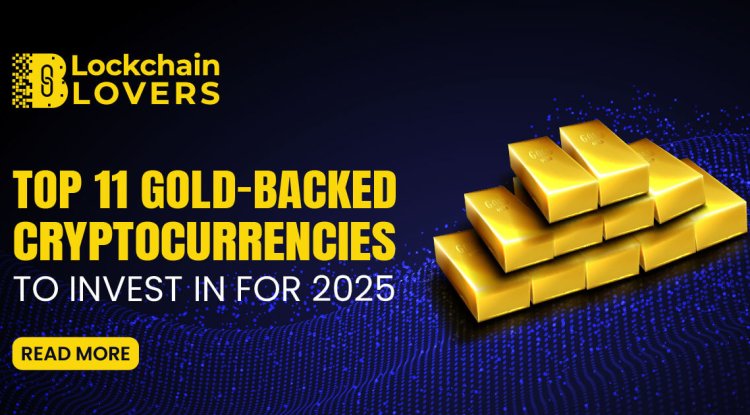Vitalik Buterin, co-founder of Ethereum
Vitalik Buterin is best known as the co-founder of Ethereum, one of the most active blockchains on the cryptocurrency platform now and the second-largest by market capitalization.

Vitalik Buterin is best known as the co-founder of Ethereum, one of the most active blockchains on the cryptocurrency platform now and the second-largest by market capitalization.
Buterin was born as a normal child in Russia and raised in a suburb of Toronto, Canada. As a child, Buterin quickly caught the attention of authorities for his mathematical skills and was labeled a gifted child. Buterin has mentioned that during his adolescence, he tried to fit in with friends and socialize normally, but he often felt isolated from them because of his talent.
Buterin first got the idea about Bitcoin in 2011 from his father, a computer scientist and software developer. At the age of 17, Buterin had no reason to be particularly interested in the idea of a currency with no inherent value. But the following year, after quitting World of Warcraft, Buterin was looking for a new way to spend his time. Like most crypto enthusiasts, Buterin was skeptical of centralized governance and viewed governments, corporate institutions, and banking as “evil.” Buterin believed that digital currencies could be a powerful step in the decentralization movement in building a new kind of economic structure defined by widespread accessibility, transparency, and accountability.
In 2011, Buterin began his career in crypto by writing articles for Bitcoin Weekly, a small publication for which he was paid in Bitcoin. His articles caught the attention of a Romanian writer named Mihai Alisi, who, being a programmer, approached Buterin with a new project. They started working on a publication named Bitcoin Magazine, where Buterin served as the chief writer while he was a graduate student at Waterloo University.
How Buterin Built the Ethereum
In 2013, Buterin attended a Bitcoin conference in California and realized that his interest in cryptocurrency was more than a hobby - it was a field with huge possibilities. He dropped out of his studies and began to brainstorm ideas on how he could contribute to the cryptocurrency revolution. The following year, he applied to be an intern at Ripple but was ultimately denied the internship due to visa complications. Many joke that the US State Department had unwittingly done him a huge favor; if he had not been rejected by them, he would not have been able to start working on the Ethereum project so long ago.
Buterin spent the next year traveling the world learning about projects that developers were considering adding to the Bitcoin network. However, he realized that the Bitcoin programming language had some limitations. He realized that blockchain technology could be used for all kinds of software, asset holdings, databases, and networks, in addition to cryptocurrencies. So he started a new idea. He wrote a white paper for Ethereum and sent it to his friends. Soon, after receiving a positive response, many cryptographers believed in his vision and came forward to help him build it.
Buterin joined at the next Bitcoin conference in Miami, where he presented an idea to the public. Many crypto enthusiasts were on board and believed that the Ethereum blockchain would create a big stir in the world. Buterin's idea featured a new innovative strategy, where users could develop their altcoins and create a whole new ecosystem for blockchain through new smart contracts using the Ethereum network. Soon, Buterin was offered the Thiel Fellowship, a fellowship for students under the age of 23 to research scientific, entrepreneurial, or socially charged ideas. Buterin was only 20 years old at the time.
After minting 31,000 BTC, the Ethereum Foundation was established as a non-profit organization in Switzerland. However, Buterin's ideas about the future of Ethereum were not universally accepted by the other Ethereum co-founders. For example, co-founder Charles Hoskinson strongly opposed Buterin's idea of running Ethereum as a non-profit organization. Charles felt that it would be better for the company to be VC-backed for-profit instead. Hoskinson was so angry that he left the company to start his own - IOHK - and lead Cardano. Hoskinson joked in 2018 about Ethereum's blowout success, saying, "What did I know?"
Although Buterin, like most crypto entrepreneurs, has been anti-establishment, his critics have argued that there are various contradictions between how Ethereum operates and its overall philosophy and techno-utopian vision. For example, an inadvertent hard fork of Ethereum in November 2020 exposed Ethereum's dependence on Infura, leading many Ethereum DApps to fall back on Infura.
The Future of Ethereum
Since Ethereums developed, Ethereum's market capitalization reached nearly $200 billion as of March 2021. Vitalik himself has built a net worth of between $400 and $500 million.
Ethereum's massive growth hasn't been only for Luck; Buterin and his team are constantly hard working to improve and expand the capabilities of Ethereum's blockchain network. While Ethereum is already arguably advanced from Bitcoin's Satoshi Nakamoto's vision, Buterin and his team are committed to taking the network to its next level.
The next phase of the project aims to reduce traffic and transaction costs on the network by increasing incentives for node validators, which is being dubbed “Ethereum 2.0,” meaning a gradual shift from proof-of-work to proof-of-stake. The new plan outlines incentives for validators to lock up their ETH, thus increasing the overall security of the network and improving its scalability.
The project is currently at 0 as of 2020 and will be developed in phases. Buterin and his team of co-founders know that they have great optimism that they will one day succeed, even though the project is still in its early stages.
Vitalik’s Personal Views and Philosophies
Buterin is a crypto idealist. Motivated by over-profit ideas, he has often sold his holdings coin at unlucky times under the belief that cryptocurrency would never go full mainstream. He has publicly stated that he would be far wealthier if he had HODL’d a bit more. Moreover, he was alerted in 2017, when the crypto Alt Techno-Utopia project was canceled due to a get-rich-quick ICO scam. In a 2018 Financial Times interview, he said “We’ve created a culture where some totally random project raising something like $8m is like, oh yeah that’s peanuts, you know you’re in a bubble!”
In the same interview, Buterin flirted with the idea of eternal life, which is gaining popularity among Silicon Valley residents. He also mentioned that we need to develop the capacity to pursue life extension technology on a large scale by 2060. Some of his philanthropic work reflects his own philosophy. In 2018, he donated $2.4 million to the SENS Foundation to research ways to stop aging. Buterin believes that not choosing to live forever, if given the opportunity, would be "the equivalent of jumping off a cliff."
What's Your Reaction?





















